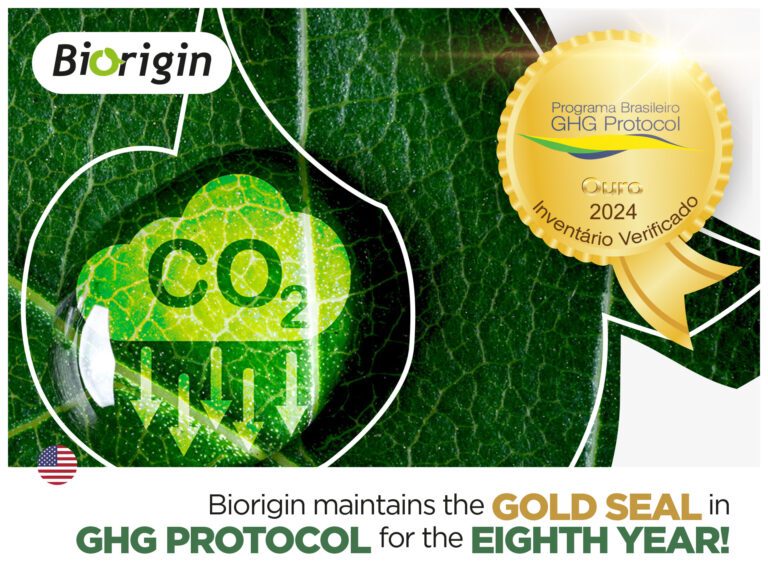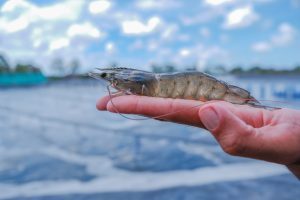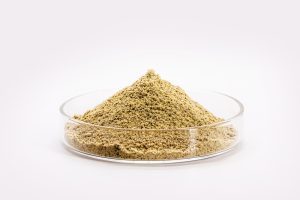Biorigin reaffirms its commitment to sustainability by maintaining the Gold Seal in its Greenhouse Gas (GHG) emissions inventory for the eighth consecutive year. This achievement highlights our dedication to adopting responsible and transparent practices essential for a more sustainable future.
This recognition was granted for disclosing the emissions inventory for Scopes 1 and 2, verified by a third party by the ISO 14064-3:2007 standard (SGS).
Earning the Gold Seal validates our work and reinforces our dedication to creating and producing innovative, natural-origin ingredients focused on the health and well-being of people and animals. Additionally, it underscores our commitment to sustainable social, environmental, and economic practices.
The results of Biorigin’s GHG emissions inventory for the 2023 cycle are available on the Public Emissions Registry’s online platform.
THE IMPORTANCE OF THE GHG PROTOCOL
The GHG Protocol is an essential tool for understanding, quantifying, and managing Greenhouse Gas (GHG) emissions.
In 2008, the Center for Sustainability Studies of the Getúlio Vargas Foundation and the World Resources Institute (WRI) adapted the method to the Brazilian context in partnership with the Ministry of the Environment, the Brazilian Business Council for Sustainable Development (CEBDS), the World Business Council for Sustainable Development (WBCSD), and 27 founding companies, thus initiating the Brazilian GHG Protocol Program.
The program aims to promote a corporate culture of GHG emissions inventory in Brazil, providing instruments and international quality standards for the accounting and publishing of emissions and inventories. These actions are fundamental for organizations to address climate change effectively.
BIORIGIN AND THE COMMITMENT TO SUSTAINABILITY
For over 20 years, Biorigin has specialized in biotechnological processes, manufacturing natural-origin ingredients for human food, pet food, and livestock feed. The company also maintains a solid commitment to sustainability and respect for the environment.
Understanding the importance of contributing to the well-being of people, animals, and the environment, Biorigin adopts measures to minimize its environmental impact. The company ensures traceability, sustainability, and quality throughout production, from raw materials (sugarcane supplied by Zilor) to the final product.
Additionally, it uses only renewable sources for electrical and thermal (steam) energy.
Biorigin operates with two carbon cycles: the biogenic cycle, originating from the fermentation of sugarcane used in the production of yeast and yeast extract, where the CO2 released is reabsorbed by the plantation, forming a neutral cycle, and the non-biogenic cycle, related to the use of fossil fuels in transportation, which is part of Biorigin’s industrial processes and global distribution.
We have written an article explaining the carbon-neutral cycle and its importance for the environment and presenting Biorigin’s sustainable initiative. Click here to learn more about our carbon process and our data.








